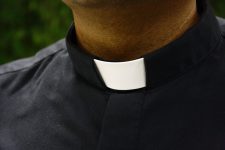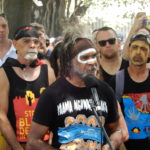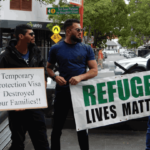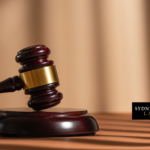Should Clergy be Forced to Divulge Confessions?

When it comes to being a witness in court, there are not a whole lot of situations where you can refuse to answer questions when asked to do so.
Only the defendant has a right to silence – not witnesses. If a witness receives a subpoena to give evidence in NSW, they are required to turn up to court and to testify if called to the witness stand. Failure to do so can be a criminal offence, and in serious circumstances can even lead to imprisonment
But there are exceptions to this rule, including the lawyer-client relationship, where information is exchanged during conferences or otherwise where there are potential legal proceedings. Courts also have the discretion not to force family members to testify against one another.
Another exception relates to information given to religious leaders.
Religious Confessional Privilege
Under section 127 the NSW Evidence Act, a person who is, or was, a member of the clergy of any church or religious denomination is entitled to refuse to disclose a religious confession made to him or her, unless the confession was made for a criminal purpose.
This means that religious leaders cannot be forced to reveal what was told to them during a ‘religious confession’.
A ‘religious confession’ is defined as a confession made by a person to a member of the clergy in the member’s professional capacity according to the ritual of the church or religious denomination concerned.
The privilege has been justified on grounds of religious freedom, and also the public policy interest in people confessing their crimes and moving forward as law-abiding citizens.
Do we need it?
Not everyone agrees that religious confessional privilege is a good thing, or that it should remain a part of our law.
The Australian Law Reform Commission recommended against keeping the privilege when the Evidence Act was being constructed, and has maintained that position ever since. The Commission has suggested that it should be replaced by a broader confidential relationships privilege, rather than kept as a separate category.
The privilege currently exists in Victoria, the Northern Territory, New South Wales, Tasmania and the Commonwealth (when it comes to federal court cases).
Is it really a big deal?
Religious confessional privilege may not seem very important, as it is fairly narrow and there are not a whole lot of cases you would expect to fall under its scope. So perhaps some might conclude that it doesn’t have a lot of significance one way or the other.
And in practice, the number of cases that might require a member of the clergy to give evidence at trial is very small – it being very unusual for the prosecution to find out that such a confession had, in fact, taken place.
For those reasons, it has been argued that the existence of the privilege is somewhat of a non-issue.
Case study – Catholic Church
One case that hit the news in 2005, which involved a confession of sorts, was found not to be captured by the privilege. The case involved two teenagers that had spoken with a member of clergy about being sexually assaulted. A man was later charged with aggravated indecent assault and sexual intercourse with a person aged between 14 and 16.
The defendant wanted to use the conversation between the teenagers and the clergy to demonstrate inconsistencies between what the teens had told police and what they told the church ministers.
The Catholic Church refused to divulge the information, claiming religious confessional privilege.
But when the case came before the judiciary, the Supreme Court ordered that the Church of Christ hand over the notes made by ministers.
The Presiding Justice found that there was no religious confessional privilege here because there was actually no confession. Her Honour said that the legislation only applied when there was an admission of wrongdoing, and that in this case, the statements were made by witnesses, not the defendant.
Other religious denominations
Interestingly, not all religious denominations have chosen to rely upon the privilege.
The Anglican Church has, for example, decided to ‘opt out.’ Dr Robert Doyle, a senior lecturer in theology at Moor Theological College, said that Anglican churches have not traditionally held an absolute privilege in respect of confessions in the same way as the Catholic Church has. Importantly, the legislation states that a member of the clergy is “entitled to refuse” to divulge communications – not that they are forced to refuse.
While the language of section 27 is broad enough to include all religions, it really developed from Catholicism, and there is very little information written about how it would relate to other religions such as Judaism or Islam which do not practice confessions in the same way as Catholics.






